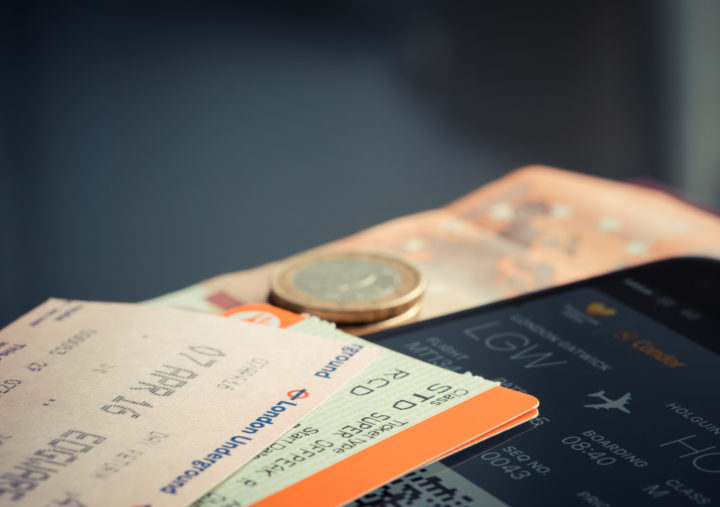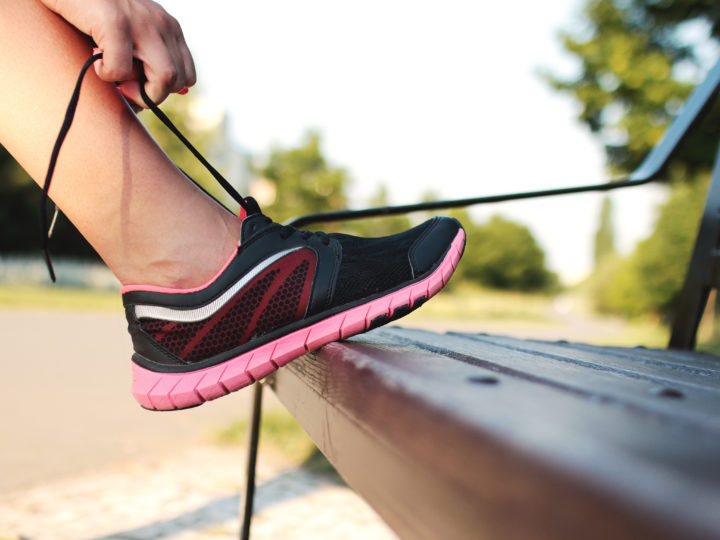Studying abroad can be a very exciting, yet also a very overwhelming experience. A lot of my friends went abroad this Spring semester like I did. During winter break, we would catch up and talk about how excited we all were for the new journey ahead of us, but also, not going to lie, how nervous we all were as well.
If you’re feeling the same emotions my friends and I were feeling before we went abroad for the first time, have no fear! Below are a list of 10 things that you NEED to do before you leave for your study abroad trip. Some may seem like common sense, while other may not have even crossed your mind- either way they’re all just as important!
-
Power of Attorney
I honestly had no idea what this meant before. Power of Attorney can be used in many different aspects in life. In the case of studying abroad, you want to appoint someone to be in charge finances while you’re away. This person is able to handle your financial aid, and deposit checks and other financial aspects, for you. It’s obviously important to have someone trustworthy (I chose my Dad) to be selected as your Power of Attorney. This process is a legal one, so it also must be notarized and also shouldn’t be skipped before studying abroad
-
Register with the Embassy
This step is really important and pretty simple to do. In the event of international, family, or political emergency or even something more common like losing your passport, the Embassy is able to assist you much better if you registered with them that you’ll be out of the country than if you didn’t register.
You can register at the U.S. Embassy at https://travelregistration.state.gov and follow the links to STEP (Smart Traveler Enrollment Program)
-
Valid Visa and Passport
This seems like an obvious task, but it might just be the most important one. You need to make sure that your passport is valid AND it won’t expire while you’re abroad. With some countries you need to have a passport that is at least valid for another six months, regardless of the amount of time you plan on staying abroad is shorter than that. You also need to make sure that if you need a visa for the country you’re studying in, you’re getting the correct one. I recommend applying for you visa at least a month before your flight abroad, however I applied and got approved within a 3 day period, so it just depends on the country.
Having a photo copy of your passport is also a really smart in case you lose your passport or it gets stolen. I had a printed out photocopy and a file on my computer of my passport just in case!
-
Absentee Voting Ballot
Obviously, this doesn’t make or break your ability to go abroad, but I think that it’s very important that everyone’s involved in the voting process. I’m currently out-of-town during the Presidential Primaries so I made sure that before I left that I went to my Town Clerk requested an absentee ballot and it was emailed to me within the hour. Super easy and makes me feel like I’m doing my part!
-
Study Abroad Folder
I’d like to think I’m an organized person- but I forgot this step! As soon as I got to Australia, I was receiving a lot of documents from my new school, new dorm, bank information ect. Having an abroad folder or binder is somewhere you can easily have all your important documents in one place. Especially with traveling, having your flight itinerary, in-country address, or anything else for when you arrive in one place, will make things a lot easier and help in a situation if you get lost.
-
Get the Proper Adaptors and Converters
If you’re bringing anything that requires electricity, you’ll need an adaptor and a converter. A lot of converters include an adaptor, but not every adaptor includes a converter. A converter is what “converts” the electric voltage into the correct one that your device is used to. There are some inexpensive ones on Amazon for your phone or other electronics. However, if you have a MacBook, I would recommend getting the Twelve South PlugBug World Travel Charger– it’s what I use and I feel safer knowing that my battery won’t get shocked from different voltages in different countries since it’s sold specifically at the Apple Store.
-
Medications
Make sure you talk to your doctor ahead of time letting them know you’re going abroad and need extra refills on your medication. This is important to do in advance because your doctor will have to approve your request and your insurance may also have to approve it before you can get the medication, especially in the case of birth control pills. You also may need to get some immunizations before traveling to different countries, so it’s always smart to talk to your doctor about your travels.
-
Notify Your Bank That You’ll Be Overseas
You don’t want to arrive in your destination and try to use an ATM to find out that your card has been blocked. Calling up your bank and letting them know that you’ll be out of the country is important to do in any trip, but especially when you’re going abroad.
You may also want to ask about international fees to determine how much it’ll cost you every time you withdraw money from an ATM or swipe your card. For me, I decided to set up a bank in Australia, withdraw money from my bank at home using the ATM, and put it straight into my Australian Bank. That way I’m not getting charged international fees every time I swipe my credit card. If you have the option to, signing up for an American credit card with no international fees is really great. You can use it on all your travels around the world and get cash back or earn reward miles. I personally have a Capitol One Credit Card and I really like it!
-
Have Your Home University and Abroad School Information Written Down
Written down is the key point. Technology unfortunately isn’t always reliable especially when you’re in a foreign country, you don’t know if you’ll have service or if your phone’s battery will randomly decide to die. Having a small card that you can have in your wallet at all times is nothing will give you that peace of mind. My home university gave me a card before I left to go abroad and here is the information they included on it.
*My study abroad coordinator at my home university along with their address and phone number.
*Study Abroad Office number
*My home schools emergency number
*Local contact info- such as in-country address
*Local emergency number (it’s not 911 in every country!)
This information is really good to have if you ever need to get in contact with your study abroad office immediately or if you are in a cab and simply forget your in-country address.
-
Pack Smart!
Packing is one of the obvious tasks you have to when studying abroad. It’s important to know what to pack and how much of it to pack. You can check out my other post Ultimate Study Abroad Packing List for more in-depth help when it comes to packing.
There are many other things that you need to do before going abroad. If you have thought of anything else that is important, comment down below and share with others in the comments!



